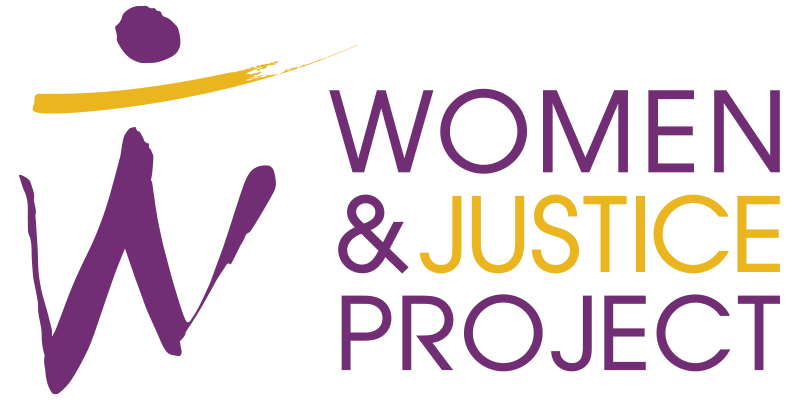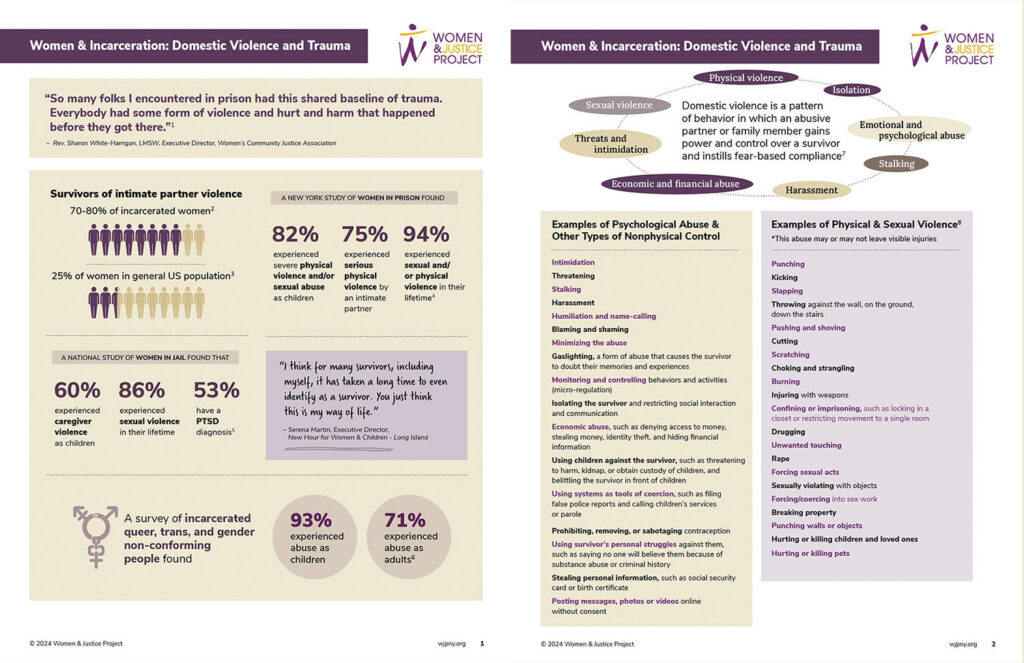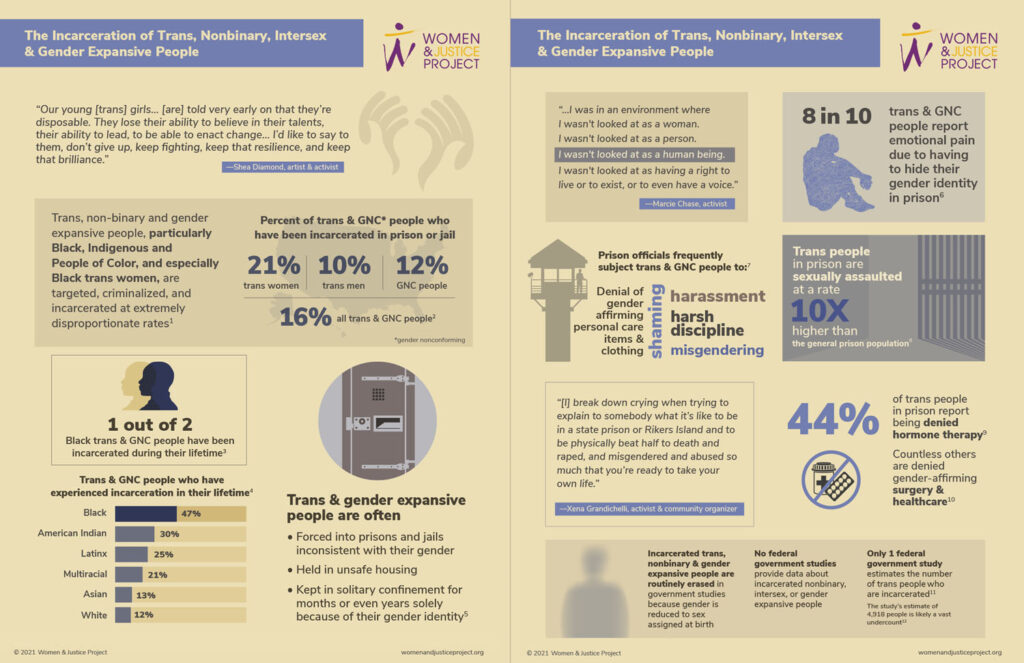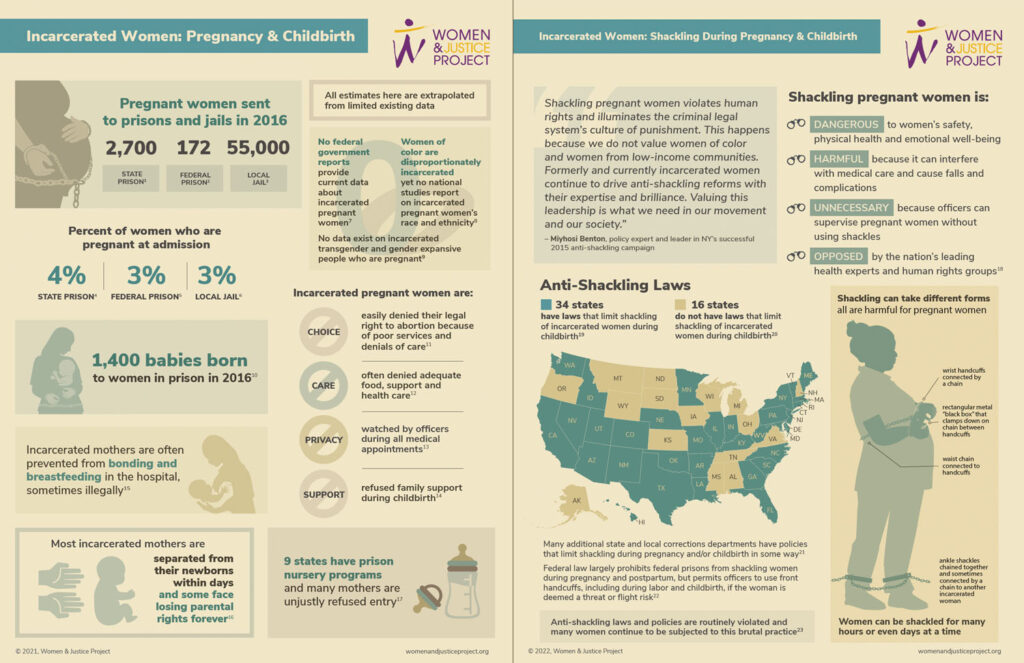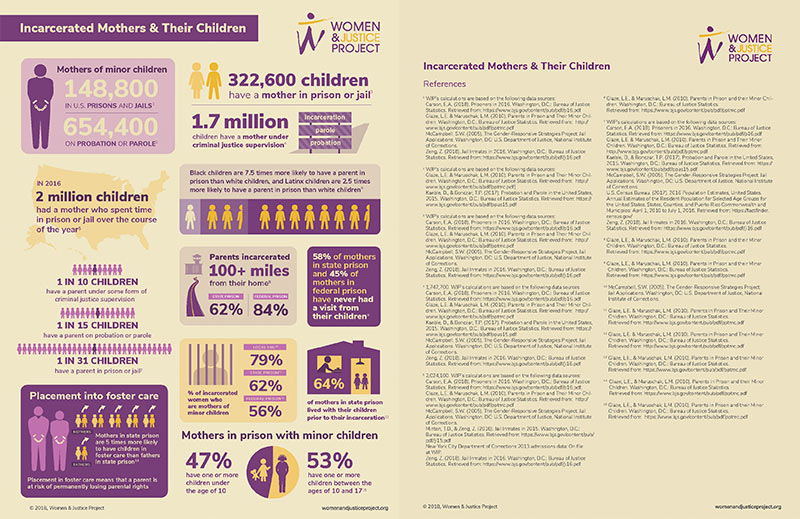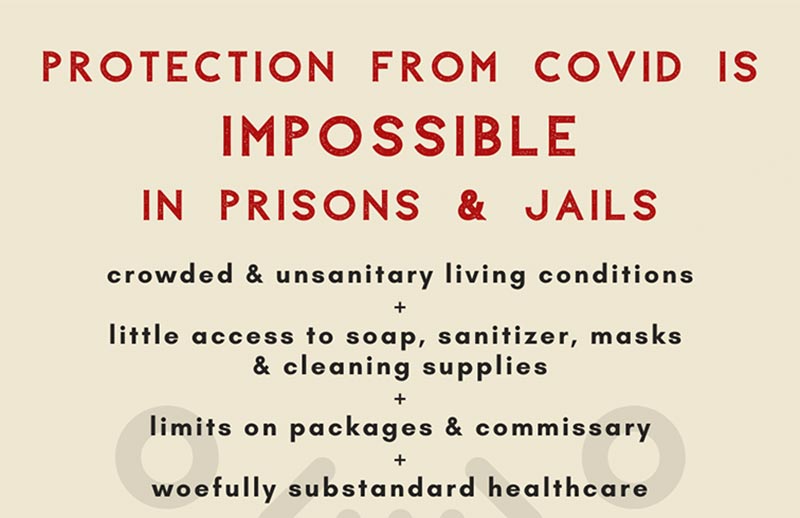Infographics
So many folks I encountered in prison had this shared baseline of trauma. Everybody had some form of violence and hurt and harm that happened before they got there.
– Rev. Sharon White-Harrigan, Executive Director, Women’s Community Justice Association
Our young [trans] girls… [are] told very early on that they’re disposable. They lose their ability to believe in their talents, their ability to lead, to be able to exact change… I’d like to say to them, don’t give up, keep fighting, keep that resilience, and keep that brilliance.
– Shea Diamond, artist & activist
Shackling pregnant women violates human rights and illuminates the criminal legal system’s culture of punishment. This happens because we do not value women of color and women from low-income communities. Formerly and currently incarcerated women continue to drive anti-shackling reforms with their expertise and brilliance. Valuing this leadership is what we need in our movement and our society.
– Miyhosi Benton, policy expert and leader in NY’s successful 2015 anti-shackling campaign
We do not believe that incarcerated mothers and their children were sentenced to lose each other.... The fact that the mother has made a serious error does not negate motherhood, nor should it condemn children to lose their rights to the support and guidance of their mother. To profoundly disrupt family relations during the mother’s imprisonment is to sentence the children to possible life-long injury.
- Precious Bedell and Kathy Boudin
The Foster Care Handbook for Incarcerated Parents, Bedford Hills Correctional Facility, 1993
Formerly incarcerated women leaders stand with women and all people behind bars today and every day. Governor Cuomo should take the important step of releasing people in prisons and jails as the threat of death by incarceration posed by COVID-19 looms large.
– Serena Martin, Executive Director, New Hour for Women and Children Long Island
